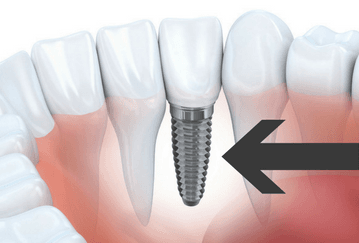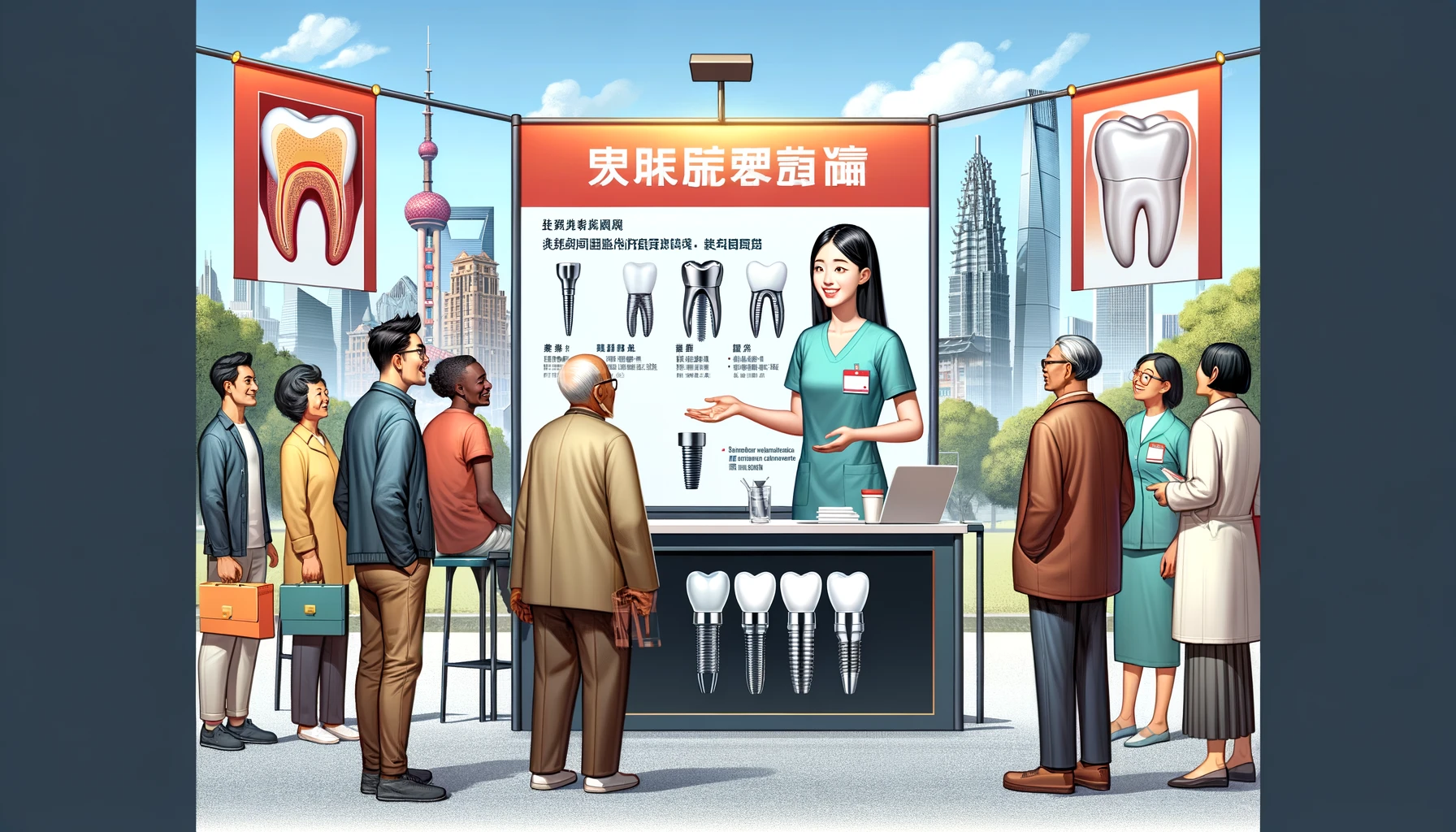Dental implants have emerged as a popular solution for individuals facing tooth loss, offering a permanent and natural-looking replacement. In China, titanium dental implants are particularly favored due to their durability and biocompatibility. If you’re considering this option, this comprehensive guide will provide you with essential information to navigate the process effectively.
Understanding Titanium Dental Implants
Titanium dental implants are artificial tooth roots made from titanium, a strong and lightweight metal known for its compatibility with the human body. These implants are surgically placed into the jawbone, where they undergo osseointegration—a process that allows them to fuse with the bone over time. Once integrated, a dental crown or bridge is attached, resulting in a functional and aesthetically pleasing replacement tooth.
Benefits of Titanium Dental Implants
Opting for titanium dental implants offers several significant benefits that make them a preferred choice for tooth replacement:
Durability: Titanium’s exceptional strength ensures these implants provide a reliable long-term solution, capable of withstanding daily chewing forces. Studies have shown that the success rate of titanium implants can exceed 90%, with many lasting a lifetime when properly cared for.
Biocompatibility: This material is well-tolerated by the human body, significantly reducing the risk of adverse reactions; true titanium allergies are exceedingly rare, affecting only about 0.6% of the population. Most reported issues stem from localized inflammation rather than an immune response to titanium.
Natural Appearance: Designed to closely mimic natural teeth, titanium implants integrate seamlessly into your smile. However, in patients with thin or receding gums, the metallic color may become visible over time, particularly in the anterior (front) region where aesthetics are paramount.
Improved Oral Health: They play a crucial role in preserving jawbone integrity and preventing bone loss following tooth loss by stimulating surrounding tissue. This helps maintain facial structure and overall oral health.
Convenience: Unlike removable dentures, dental implants are permanently anchored in place, enabling you to eat, speak, and smile with confidence. With a success rate often exceeding 90%, these implants represent a durable and effective solution for tooth replacement.
The Dental Implant Process in China
Getting a titanium tooth implant in China involves several essential steps that ensure a successful outcome:
Step 1: Initial Consultation
The process begins with a thorough consultation at a reputable dental clinic, where your oral health will be comprehensively evaluated. During this appointment:
- X-rays or 3D scans are conducted to assess your dental structure.
- Various treatment options are discussed based on your specific needs.
- The condition of your jawbone is examined to determine if additional procedures, such as bone grafting, are necessary.
This initial assessment is crucial as it helps identify any potential complications that may arise during surgery.
Step 2: Surgical Placement of the Implant
Once a treatment plan is established, the surgical placement of the titanium implant occurs, typically under local anesthesia or conscious sedation.
During this procedure:
- A small incision is made in the gum tissue.
- A precise hole is drilled into the jawbone.
- The titanium implant is inserted and left to heal.
Post-surgery care is vital; patients are advised to follow their dentist’s instructions closely to minimize risks such as infection or implant failure.
Step 3: Osseointegration and Healing
After surgery, a critical healing period follows for osseointegration, which usually lasts between 3 to 6 months. During this time, new bone forms around the implant, securing it in place. You may receive a temporary restoration to maintain both aesthetics and function during this healing phase.
Step 4: Attachment of the Final Restoration
Once osseointegration is complete, your dentist will proceed with final steps:
- Impressions or digital scans are taken to create a custom-made crown or bridge that matches your natural teeth.
- The final restoration is securely attached to the implant, completing the process.
Regular follow-up visits are essential after placement to ensure everything is healing properly and functioning as intended.
Choosing the Right Dental Implant Clinic in China
Selecting the right clinic is essential for a successful dental implant experience. Here are key factors to consider:
Accreditation and Certifications: Opt for clinics accredited by reputable organizations such as the Joint Commission International (JCI) or ISO certification bodies. These accreditations ensure adherence to strict quality standards, enhancing patient safety and care quality.
Experience and Expertise: Choose clinics where experienced specialists perform implant procedures. Verify their qualifications, including any specialized training in oral surgery or implant dentistry, as this greatly impacts surgical outcomes.
Advanced Technology: Ensure the clinic utilizes cutting-edge technologies like computer-guided implant surgery and digital impressions. These innovations allow for precise treatment planning and improved surgical outcomes, significantly enhancing patient satisfaction.
Patient Reviews and Testimonials: Check patient feedback to assess the clinic’s reputation. Positive reviews often reflect quality care and high patient satisfaction, providing insight into the experiences of others.
Pricing and Payment Options: Understand the clinic’s pricing structure and available payment plans. Transparent pricing helps avoid unexpected costs, allowing you to make informed financial decisions regarding your dental care.
By considering these factors, you can make an informed decision that prioritizes your health and comfort while achieving optimal results.
Aftercare and Maintenance
Ensuring the longevity of your dental implants requires consistent and mindful aftercare—this is crucial for preventing complications and ensuring successful integration with your jawbone.
Oral Hygiene: Brush gently with a soft-bristled toothbrush twice daily and consider using non-abrasive toothpaste to maintain optimal oral health without irritating sensitive areas.
Regular Dental Check-ups: Schedule routine visits every three to six months to assess your implant’s health and receive professional cleanings tailored to your needs.
Avoid Harmful Habits: Protect your implant by avoiding smoking, which can hinder healing, as well as refraining from chewing hard objects like ice or pens that may damage your implant.
Follow Post-operative Instructions: In the first 48 hours post-surgery, avoid rinsing your mouth; instead, gently rinse with salt water starting 24 hours after surgery to promote healing without disturbing the surgical site.
By integrating these practices into your routine, including using specialized cleaning tools like interdental brushes or water flossers, you can ensure the durability and functionality of your dental implants for years to come.
Cost of Titanium Dental Implants in China
The cost of titanium dental implants in China can significantly vary due to several factors, including clinic location, dentist experience, and the complexity of the procedure. On average, patients should expect to pay between $1,500 and $3,000 USD for a single implant; however, public hospitals have capped fees at approximately CNY 4,500 (around $650 USD) per implant. Additional expenses may encompass:
- Initial consultations
- Diagnostic tests
- Bone grafting (if necessary)
- Anesthesia
- Final restorations
- Follow-up appointments
To enhance accessibility, many clinics provide package deals or flexible payment plans, which can include multiple services at a reduced rate. It is advisable to discuss all potential costs upfront with your chosen clinic to avoid unexpected expenses. Additionally, patients should inquire about different types of implants available—such as single implants or full-arch restorations—and confirm which major cities offer these services.
Conclusion
Opting for a titanium tooth implant in China can significantly enhance your quality of life by restoring your ability to eat, speak, and smile confidently. By understanding the process involved, selecting a qualified dental clinic, and adhering to proper aftercare practices, you can enjoy the benefits of a successful implant. Remember to conduct thorough research, ask pertinent questions, and prioritize quality over cost for the best possible outcome.
For more information on dental implants in China, consider visiting official resources such as The International Congress of Oral Implantologists or The American Academy of Implant Dentistry.















